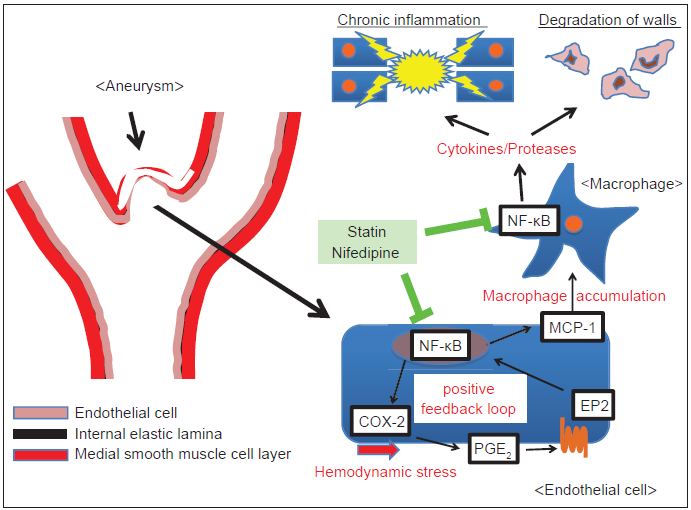In this article, I want to discuss how Fucoidan helps as an anti-inflammatory in cases of Aneurysms.
According to “The therapies from Fucoidan” by Janet Hellen Fitton et al., over 5% of older men experience Abdominal Aortic Aneurysm (AAA). An abdominal aneurysm is the local dilation of the main artery as it passes through the abdomen. Rupture of this aneurysm is fatal and usually requires emergency surgery.

Aneurysms are partly an inflammatory condition. In an animal model involving a bacterial-stimulated blood clot in the aneurysm, Fucoidan was seen to lessen the artery’s swelling by reducing the number of inflammatory neutrophils entering the area.
Additionally, there was an extensive study on “Fucoidan attenuates angiotensin II-induced abdominal aortic aneurysms through the inhibition of c-Jun N-terminal kinase and nuclear factor κB activation” by Shih-Hung Tsai MD. Ph.D. et al. According to it, it is found and proven that the treatment with Fucoidan significantly reduced the incidence of AAA (abdominal aortic aneurysm) formation. The study’s fucoidan administration significantly attenuated AngII-induced aortic dilatation from 1.56 ± 0.76 mm to 1.09 ± 0.30 mm.
Administration of Fucoidan significantly suppressed MMP-2 and MMP-9 activity and reduced the degree of elastin degradation in vivo. In vitro, Fucoidan was found to improve the phosphorylation of AngII-induced c-JunN-terminal kinase and nuclear factor κBp65, further reducing the production of MMPs and reactive oxygen species.
In vitro, Fucoidan was found to improve the phosphorylation of AngII-induced c-JunN-terminal kinase and nuclear factor κBp65, further reducing the production of MMPs and reactive oxygen species. (Reference: AngII plays a critical role in fostering arteriosclerosis and diabetic angiopathy.)
Fucoidan inhibits the progression of experimental AAA growth by weakening the activation of pro-inflammatory nuclear factors κB and c-Jun N-terminal kinases. Fucoidan can be a potential medical adjunct to small AAA.

Fucoidan suppressed the progression of experimental abdominal aortic aneurysm growth by weakening the activation of pro-inflammatory nuclear factors κB and c-Jun N-terminal kinase.
This study shows that Fucoidan inhibits the progression of experimental AAA proliferation through attenuation of inflammation-inducing nuclear factors κB and c-JunN-terminal kinase activation. Hence, Fucoidan is capable of being a potential medical adjunct to small AAA.
